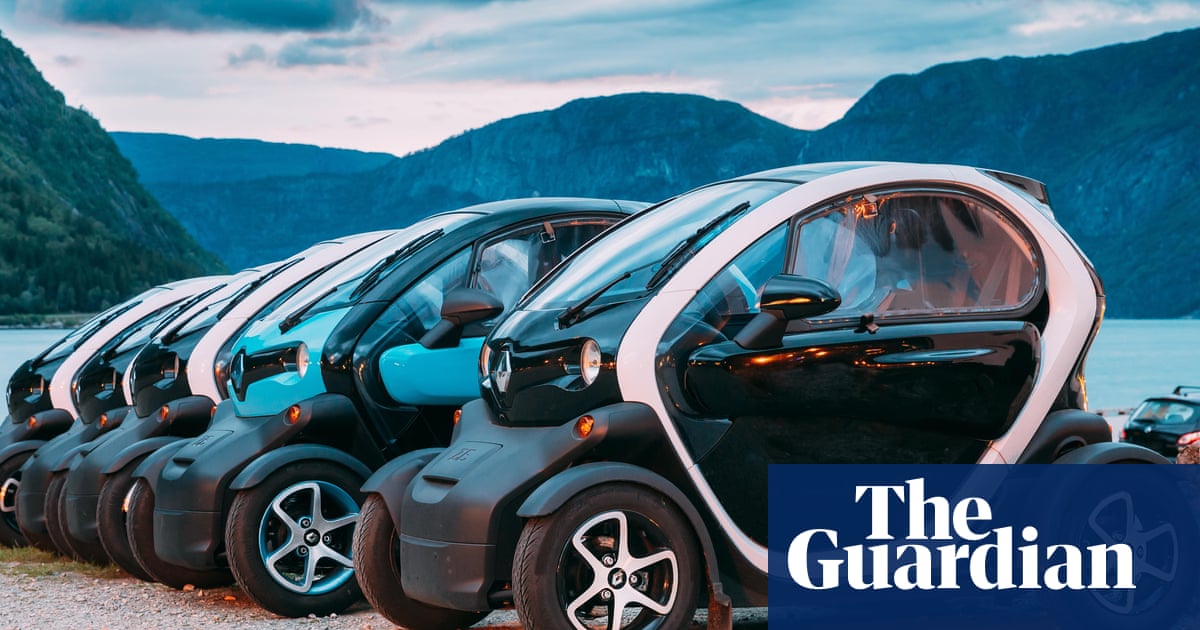Citroën ownerStellantisand Renault have warned that they may be forced into “painful decisions” over the future of their factories in Europe, as they urged the EU to adopt more favourable rules for small cars.
The chief executives of the carmakers said there needs to be more focus on smaller, affordable cars in Europe as SUVs continue togain popularity.
In a joint interview in French newspaper Le Figaro, theRenaultchief executive Luca de Meo and the Stellantis chair, John Elkann, called for separate regulation for smaller cars.
De Meo said: “What we are asking for is a differentiated regulation for smaller cars. There are too many rules designed for bigger and more expensive cars, which means we can’t make smaller cars in acceptable profitability conditions.”
De Meo, the former head of the European car trade body ACEA, has in the past lamented the growing size of cars, asking whyEuropecannot follow Japan’s taste for the Kei class of “light automobiles”, which benefits from tax and parking discounts.
However, premium carmakers, such as Germany’s BMW, Mercedes and some brands within the Volkswagen group, are more focused on export, said de Meo.
“[For them], Europe does count, but [their] priority is export. For the past 20 years, their logic has dictated market regulations. And the result is that European rules mean that our cars are ever more complex, ever heavier, ever more expensive, and most people simply can’t afford them any more,” de Meo added.
Elkann, whose Stellantis group includes Fiat and Jeep, told the newspaper that EU car sales were at disastrous levels arguing that having specific regulations for smaller cars was a “strategic matter”.
“At this rate, if the trajectory does not change, we will have to make some painful decisions for our production base over the next three years,” he said.
Their remarks come as new data on Tuesday showed sales of cars in the UK fell by more than 10% in April, including a 62% plunge for Tesla, as they were hit by weak consumer confidence and tax increases.
The Society of Motor Manufacturers and Traders said 120,331 vehicles were registered, assalesof new Teslas slumped to 512 from 1,352 in the same month a year ago.
Tesla has faced abacklashafter its chief executive Elon Musk’s tilt to the political right and customers may also have been waiting for its Model Y cars to arrive in showrooms next month.
Ford has become the latest carmaker to withdraw its profit forecasts amid continuing turbulence caused by Donald Trump’s 25% tariffs on auto imports. It said costs on imports from Mexico and Canada would addabout $2.5bn (£1.9bn) to its overall costs this year.
Sign up toBusiness Today
Get set for the working day – we'll point you to all the business news and analysis you need every morning
after newsletter promotion
The EU trade commissioner, Maroš Šefčovič, has again urged the US to strike a deal over tariffs.
Speaking in the European parliament, he warned that if talks “do not yield the necessary results, we will be ready for the alternative with the aim of restoring a level playing field”.
He also revealed that the EU had launched market surveillance of imports from “other countries” with the first report expected in mid May amid concern that Chinese electric vehicle makers along with the discount retailers Temu and Shein were diverting trade to the bloc.
He said if Trump carries through his various threats of tariffs in addition to existing import duties on cars and steel, its import taxes would jump from €7bn in 2024 to €100bn.
“This situation is not acceptable and we cannot afford to stay idle,” he said.
If it doesn’t cut a deal it is prepared for retaliatory tariffs and litigation, he warned.
